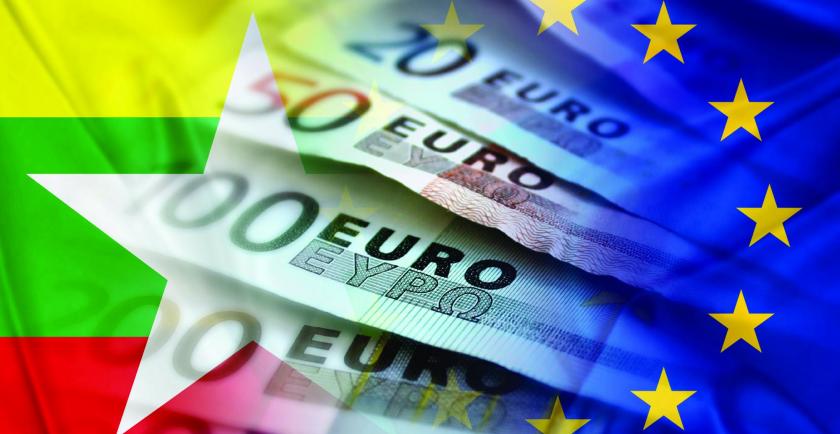European Union’s GSP trade rights will benefit the developing and six out of every one thousand people in Myanmar (U Aung Naing Oo, Director General of DICA)
16 มกราคม 2562
The EU’s GSP trade benefits to Myanmar help six out of every one thousand people in the country, U Aung Naing Oo, General Director of DICA, said in his talk at the seminar held on January 5 at UMFCCI. Continued onThe EU’s Generalised Scheme of Preferences (GSP) allows vulnerable developing countries to pay fewer or no duties on exports to the EU, giving them vital access to the EU market and contributing to their growth.
“EU’s GSP is very important for this country. There are investors who want to come into the country looking at the GSP benefits. However, they are hesitating because of reports of conflict. If 3,000 additional factories come in to the country, we will be able to create jobs for 60 out of every one thousand people,’’ he added.
Before the EU granted Myanmar GSP rights in 2013, there were 24 foreign factories in Myanmar exporting goods to the EU, and they provided over 20,000 jobs for people.
After 2013, when the GSP came into affect, the number of foreign factories in the country exporting goods to the EU surged to 329, and created over 300,000 jobs for the local population, U Aung Naing Oo, said.
Likewise, number of locally owned factories exporting to EU also increased, totaling up to 75 factories.
In the 2017 Fiscal Year, exports to the EU amounted to approximately $830 million, and it surged to $1.64 billion in the 2018 Fiscal Year. Therefore, the EU’s GSP plays a critical role in improving country’s productivity, and a lot of investors are considering to come into the country based on EU’s GSP, U Aung Naing Oo, said.
Officials of UMFCCI, a leading trade association in Myanmar, urged local companies to take advantage of Myanmar’s GSP status as a way to market themselves to other countries.
“Our agricultural exports and livestock exports have received recognition and have a good reputation from the international community. If we are able to export our products to EU, then we won’t need a lot of effort convincing other countries that we have good quality that is safe for consumers, and we will able to export easily,’’ said U Ye Min Aung, Vice President of UMFCCI.
He also pointed out that Myanmar needs to have a quality-oriented market. In Myanmar, companies that have access to EU market produce products in line with international standards. Companies that don’t export goods, but are focused only on the local market, don’t have a great reputation for consistency in producing good quality products. So he’s encouraging those companies to follow the good example of companies that export to the EU.
“It was not easy to have permission from the EU for our exports. It took a lot of time as well as money. So, I want to urge businessmen to grasp the opportunities,’’ said Daw Toe Nandar Tin, Vice President of Myanmar Fishery Federation.
Furthermore, India and China boast 2.7 billion people out of approximately 7.6 billion worldwide. Myanmar’s geographical importance here cannot be overstated. Myanmar is located directly between China and India, sharing a huge border with both countries. A single factory in Northern Myanmar, exporting goods by ground transport, would have access to roughly 36 percent of the world’s population. This is why he urged the local companies to use smart marketing strategies. By combining Myanmar’s prime location and GSP rights, you have a winning combination for investment and export.
(Myanmar Business Today: https://www.mmbiztoday.com/articles/benefits-eu-s-gsp-trade-rights-myanmar )











